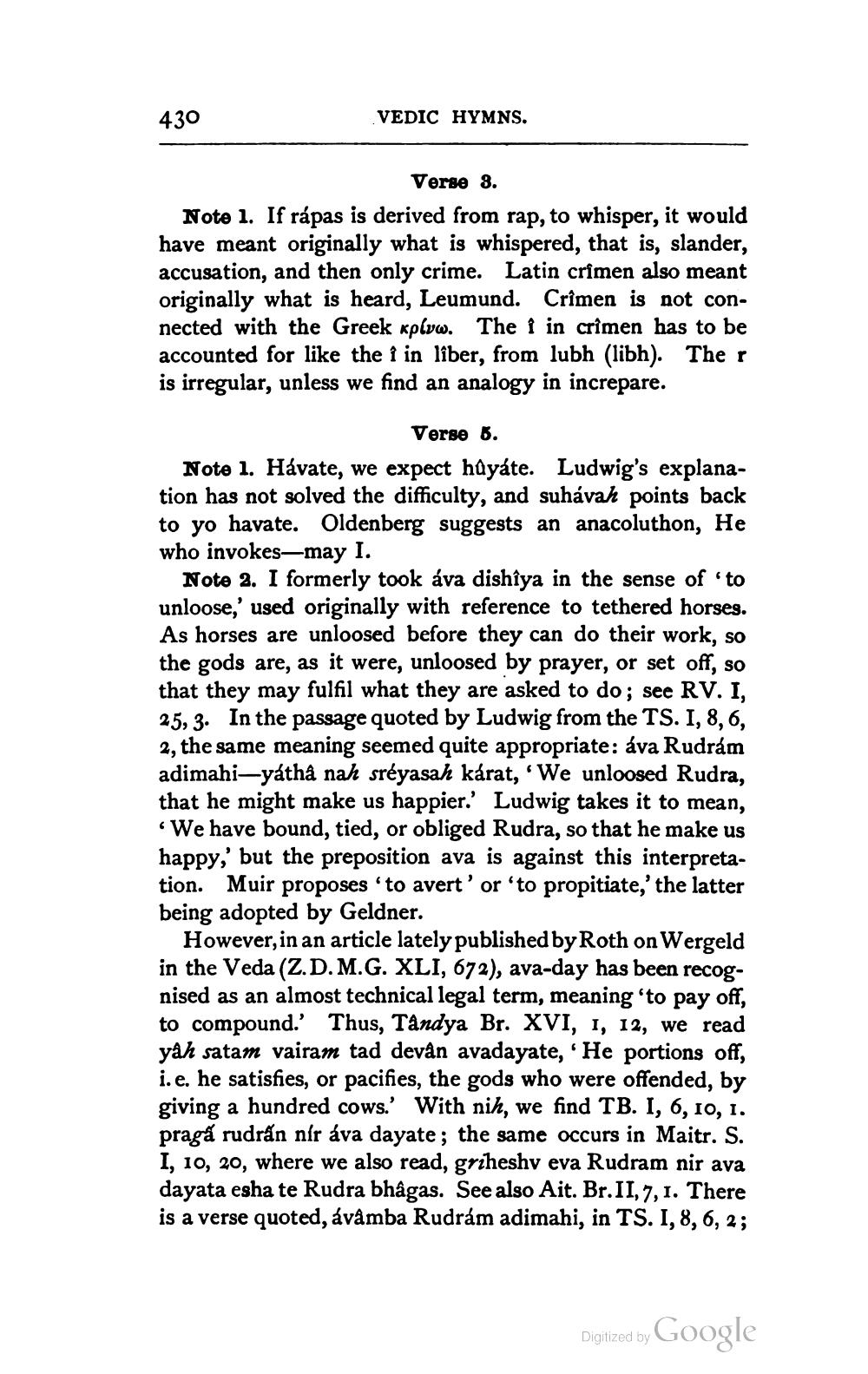________________
430
VEDIC HYMNS.
Verse 3. Note 1. If rápas is derived from rap, to whisper, it would have meant originally what is whispered, that is, slander, accusation, and then only crime. Latin crimen also meant originally what is heard, Leumund. Crimen is not connected with the Greek wplyw. The i in crimen has to be accounted for like the i in liber, from lubh (libh). Ther is irregular, unless we find an analogy in increpare.
Verse 6. Note 1. Hávate, we expect hùyáte. Ludwig's explanation has not solved the difficulty, and suhávah points back to yo havate. Oldenberg suggests an anacoluthon, He who invokes—may I.
Note 2. I formerly took áva dishîya in the sense of 'to unloose,' used originally with reference to tethered horses. As horses are unloosed before they can do their work, so the gods are, as it were, unloosed by prayer, or set off, so that they may fulfil what they are asked to do; see RV. I, 25, 3. In the passage quoted by Ludwig from the TS. I, 8, 6, 2, the same meaning seemed quite appropriate: áva Rudrám adimahi-yátha nah sréyasah kárat, 'We unloosed Rudra, that he might make us happier.' Ludwig takes it to mean, “We have bound, tied, or obliged Rudra, so that he make us happy,' but the preposition ava is against this interpretation. Muir proposes 'to avert' or 'to propitiate,' the latter being adopted by Geldner.
However, in an article lately published by Roth on Wergeld in the Veda (Z.D.M.G. XLI, 672), ava-day has been recognised as an almost technical legal term, meaning 'to pay off, to compound.' Thus, Tandya Br. XVI, 1, 12, we read yah satam vairam tad devån avadayate, 'He portions off, i.e. he satisfies, or pacifies, the gods who were offended, by giving a hundred cows.' With nih, we find TB. I, 6, 10, 1. praga rudran nir áva dayate; the same occurs in Maitr. S. I, 10, 20, where we also read, griheshv eva Rudram nir ava dayata esha te Rudra bhagas. See also Ait. Br.11,7,1. There is a verse quoted, ávamba Rudrám adimahi, in T$. I, 8, 6, 2;
Digized by Google




